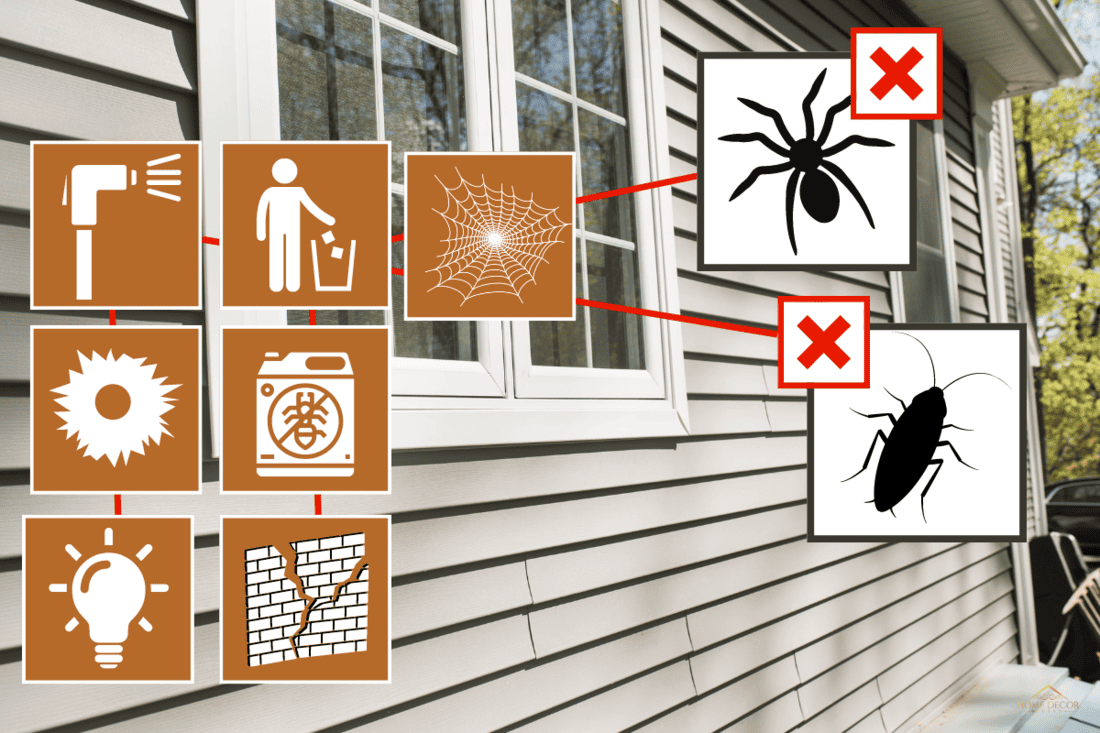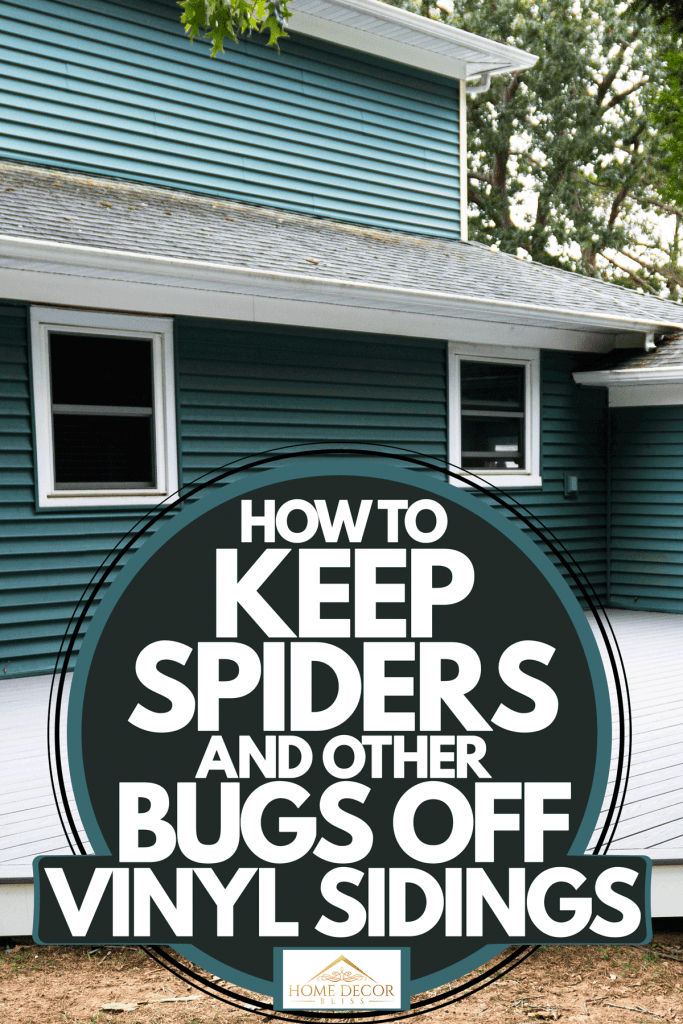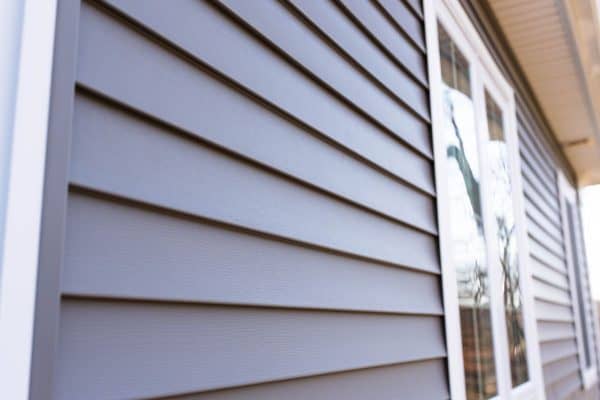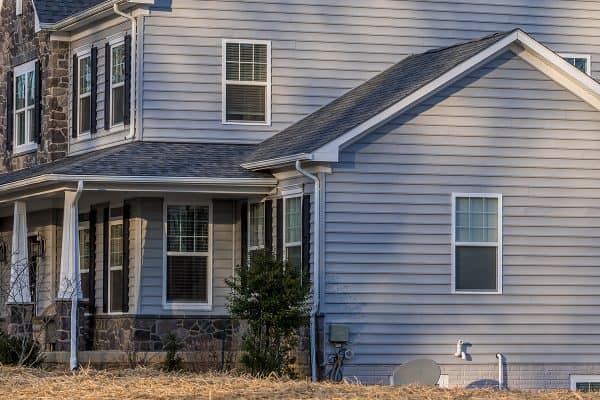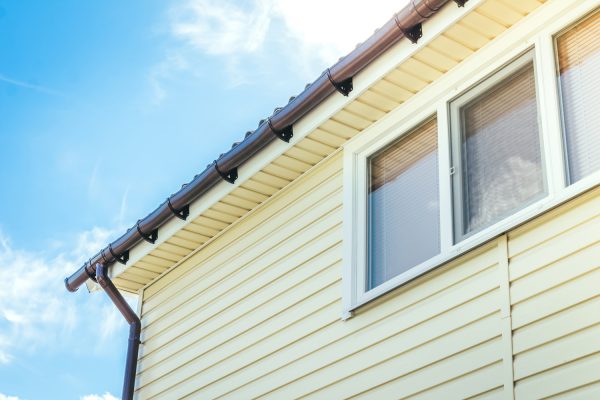Vinyl siding on homes has always been popular due to its simple maintenance and great durability. However, one of the few nuisances of owning a home with vinyl siding is that it can often become a breeding ground for spiders and other types of bugs and insects.
If you have spiders and insects crawling on your home's vinyl siding and you're wondering how to get rid of these pests and prevent them, you've come to the right place.
We've researched the best pest prevention methods for vinyl siding, and in this post, we will share them with you.
Here are the best methods to keep spiders and other bugs off vinyl siding:
- Use a pressure washer.
- Limit their food
- Seal gaps and cracks
- Sweep away their homes
- Use Insecticide
- Removed their shelter areas
- Reduce the amount of outside lighting around your home
- Replace old or damaged vinyl siding
If you live in an area with a climate that averages anywhere between 40-80 degrees Fahrenheit during any time of the year, you've probably become more than a little familiar with spiders and other sorts of creepy crawlers around your home.
The good news is that you don't always need to pay an exterminator to eliminate these pests. Continue reading to learn about ways to get rid of them on your own.
How To Keep Spiders And Other Bugs Off Vinyl Siding
Some of the methods listed here will eradicate spiders and other bugs immediately, and others will take a few days to work their magic. To keep bugs away, it may be best to do a 6-month follow-up with any of the chosen methods, as they're likely to come back with changing seasons.
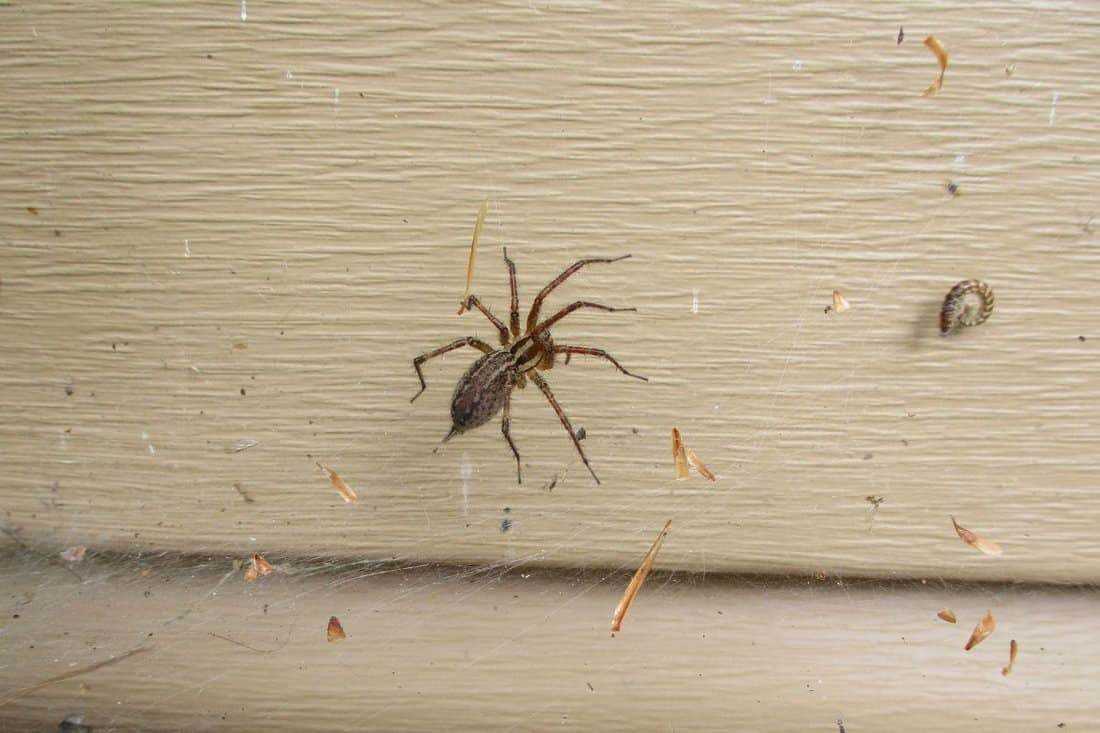
We may include affiliate links and curated AI content to highlight top design styles.
Use a pressure washer.
You can also use a pressure washer to blast away any spider webs or nests made by other bugs and insects. This option may be easier if your home is on the larger side and has multiple stories.
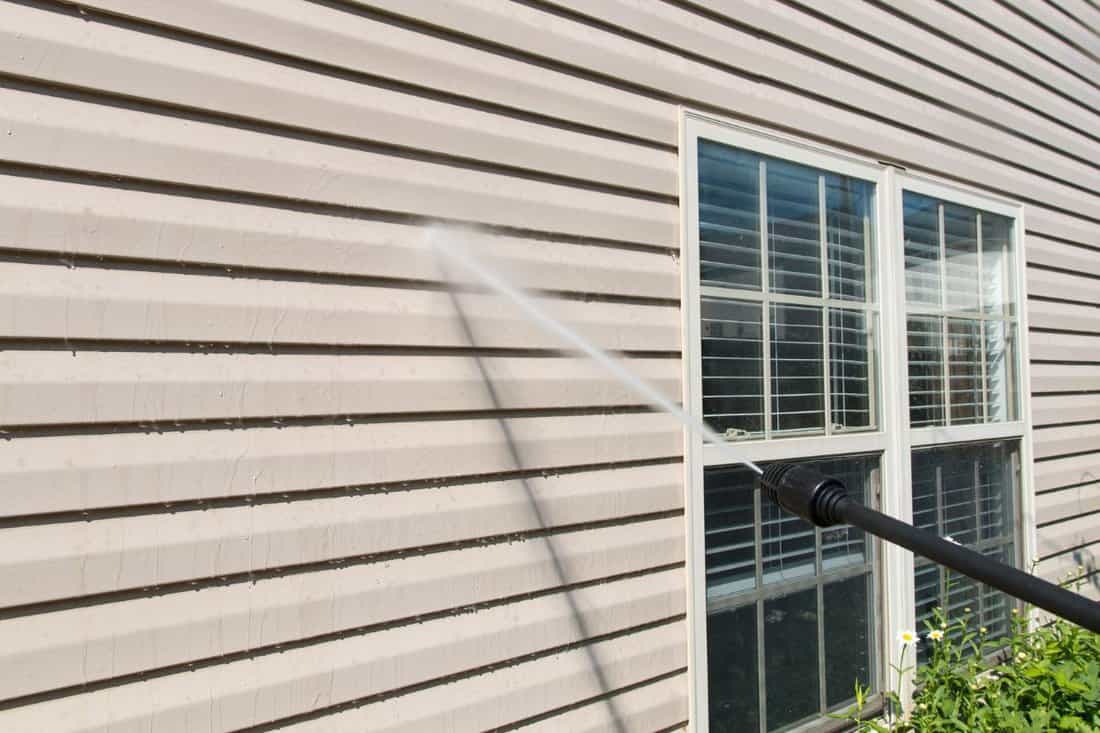
Before blasting the vinyl siding with the power washer, it's best to do a small test to ensure you have it on the correct setting.
You don't want to damage your vinyl siding, which is pretty easy to do with power washing. Be sure to get under the clapper boards of the siding and between the trim and around the window sills. The great thing about this method is that you can give your home a quick cleaning during the process.
Limit their food
Another reason why spiders may hang around your vinyl siding is that they have easy access to food. This can include dead flies and other small insect carcasses that may be lying on or around your home siding.
Walk around the perimeter of your home and clear away any remains of dead insects or bugs. Common places where you may find them include around exterior doors, on window seals, and beneath the flaps of your clapper boards.
Seal Gaps and Cracks
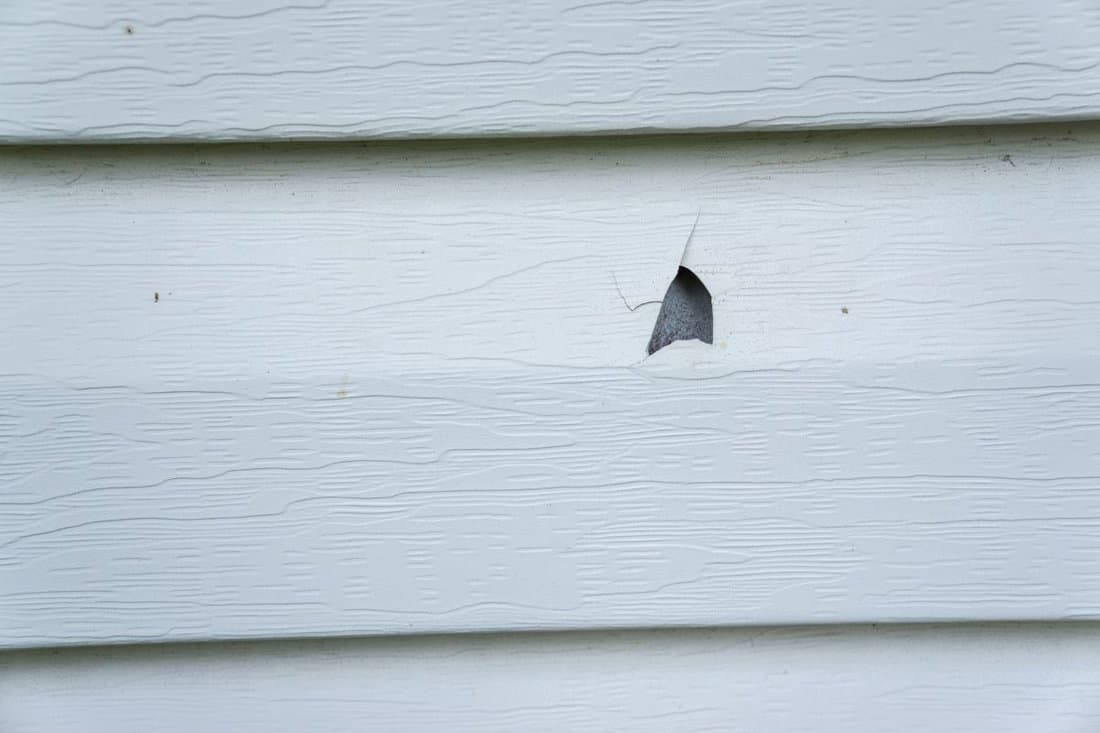
Spiders love to hang out in cool and dark places around home siding or between gaps and cracks of a home's outer structure. You can give them fewer places to hide by filling any gaps or crevices around your home with outdoor sealant or silicone caulk.
The most common areas to apply the caulk is around window trim, between deck or porch boards, and around exterior doors.
Filling up these gaps can also help remove any draft-creating areas from your home that you may not be aware of.
If your siding has been damaged or has any open holes or cracks, you may want to replace it, as these areas provide spiders and bugs with a place to hang out and nest. If the damage is minimal, patch it up with spackle.
Sweep away their homes
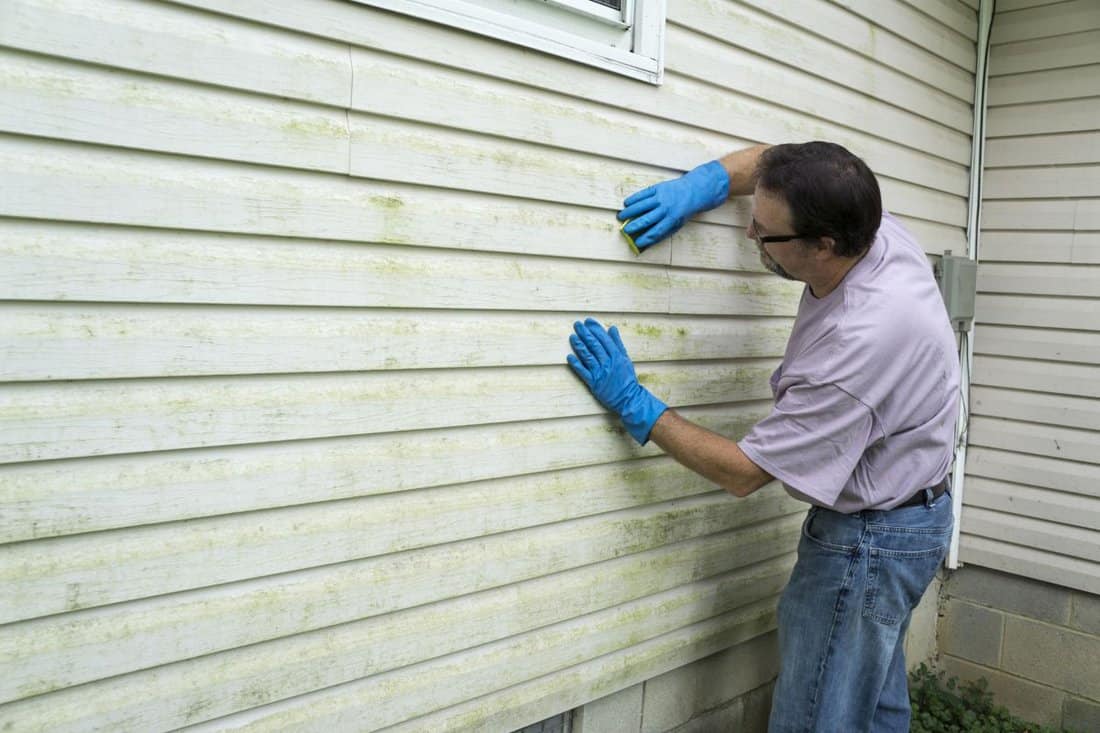
Take an everyday push broom and sweep the vinyl siding around your home. You will likely need a ladder to reach the higher sections of the siding near the roof, or you can also attach an extension to your broom as well.
Sweep away all of the spider webs and nest areas between the siding and the roof of your home, around the window seals and vent eaves, and on your deck and porch areas.
Be sure to don protective equipment, including a dust mask and safety goggles, as a lot of debris is bound to fall in your direction. Pay special attention to the areas underneath the flaps of the siding and in any other cracks and crevices.
If you come across any globular egg sacs [laid by spiders], it's best to physically remove them instead of just sweeping them away with your broom.
The baby spiders can hatch and eventually make their way back up to the siding. Instead, place the egg sacs in a plastic bag and toss them in the garbage.
Use Insecticide
Purchase a commercial insecticide containing chlorpyrifos, diazinon, or pyrethroids, as they can kill several pests and their offspring. You can also use organic insecticide if you have children or animals.
Apply the insecticide to the perimeter of your home, paying particular attention to the trim around any exterior doors and beneath all windowsills. Also, be sure to cover around your deck or porch areas, particularly the shaded parts.
Removed their shelter areas
Spiders often move to places where they can find shelter from outside elements and temperatures.
Common places include inside of heaps of composts, garden bags, building materials, firewood logs, and piles of cut grass. Keep these items in a shed or basement to keep spiders from occupying them.
Reduce the amount of outside lighting around your home
Bugs and most insects are drawn to bright lights, making these areas the ideal place for spiders looking for prey.
Remove any unnecessary lights from outside your home or use motion detector lights to minimize the amount of light near your home's siding.
Replace old or damaged vinyl siding
It's possible that the old siding on your home is what's attracting insects, spiders, and other pests. If the siding is cracking, splitting, or warping, it may retain extra moisture--which pests love.
Take a good look at all of your siding, and if you see any boards that need to be replaced, it may be best to take a trip to the hardware store.
What Attracts Spiders To Your House?
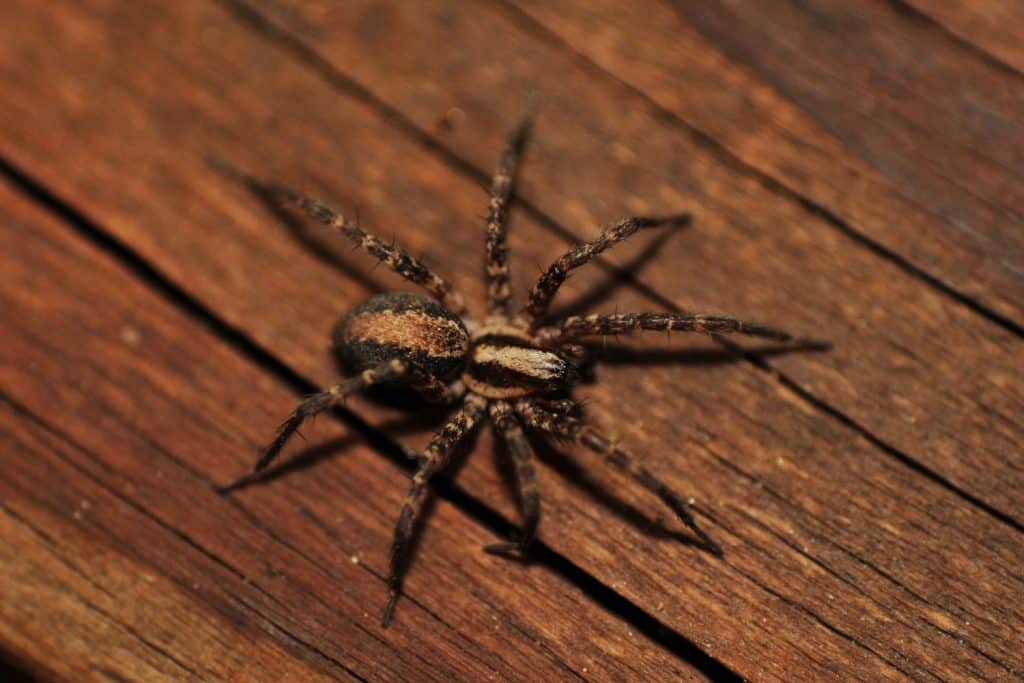
Several factors attract spiders to your home. Here are two of the most common ones.
Damp or Wet Areas
Spiders prefer to seek shelter from extreme weather conditions and will relocate to the nearest haven that they can find.
One way to combat this is to seal up any holes, cracks, or crevices around the perimeter of your home, particularly around window seals and door trim. Don't make it easy for them.
They're searching for food.
If spiders find a steady food source around your home, they will stay as long as it is in supply.
Use a broom to brush away any dead bugs from around your home--which they will use as food. Also, refrain from keeping large piles of debris around the home as they can use these areas for nesting.
What Smells Do Spiders Hate?
Spiders hate the smell of anything citrus-based, which includes oranges, lemons, and lime. They also hate the smell of many essential oils, including peppermint oil, eucalyptus oil, and tea tree oil.
Lastly, spiders do not like the smell of vinegar--which isn't uncommon for most bugs and insects.
What Kills Spiders Instantly?
Most commercial cleaners, such as the Ortho and Terminex product lines, will kill spiders upon impact. You can also purchase other insecticides made by renowned brands, including Raid and Combat.
Diluted bleach will also kill spiders on impact; however, you'll want to use it with caution as it can be harmful to the plants or shrubs around your house--not to mention any pets that you may own.
How Do You Get Spider Poop Off Vinyl Siding?
If you notice any dark thick ink-like stains on your vinyl siding, the chances are that these are the droppings of a six-legged creepy crawler.
One easy method that you can use to get rid of the droppings is to power wash the vinyl siding using a solution that contains 4 gallons of water and one-fourth of a cup of laundry detergent.
If the stains are especially stubborn, use a stiff-bristled brush to manually scrub the siding [you'll likely need a ladder for this]. You can also add a bit of vinegar to the solution as well.
Wrapping things up
You may not think that spiders are a problem if you only see a few webs around your vinyl siding.
However, the presence of their webs can hinder the appearance of your vinyl siding, making it look worn and dirty.
Also, it's best to have an active plan to eradicate spiders at least once or twice a year, as their population can quickly grow if they are left free to feed and freely roam around the perimeter of your property.
Before you go, be sure to check out our other posts:

